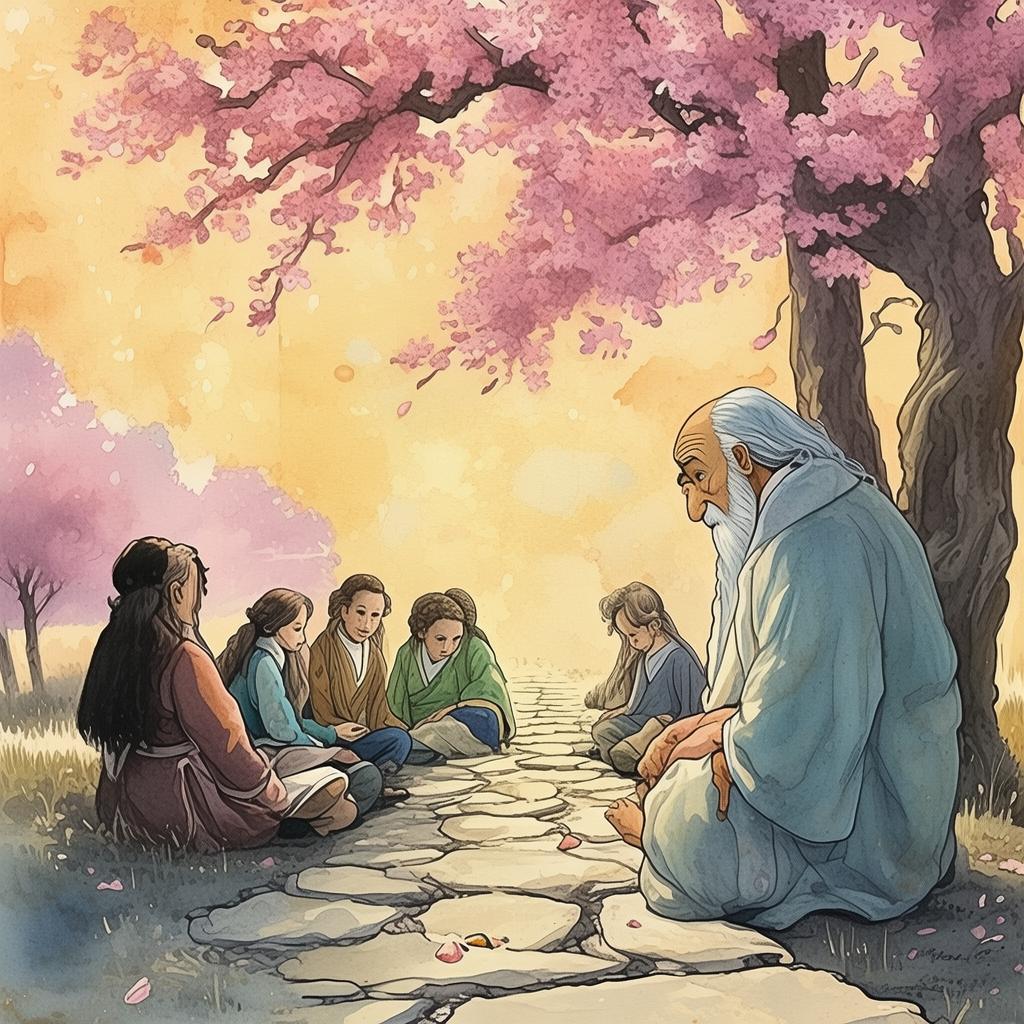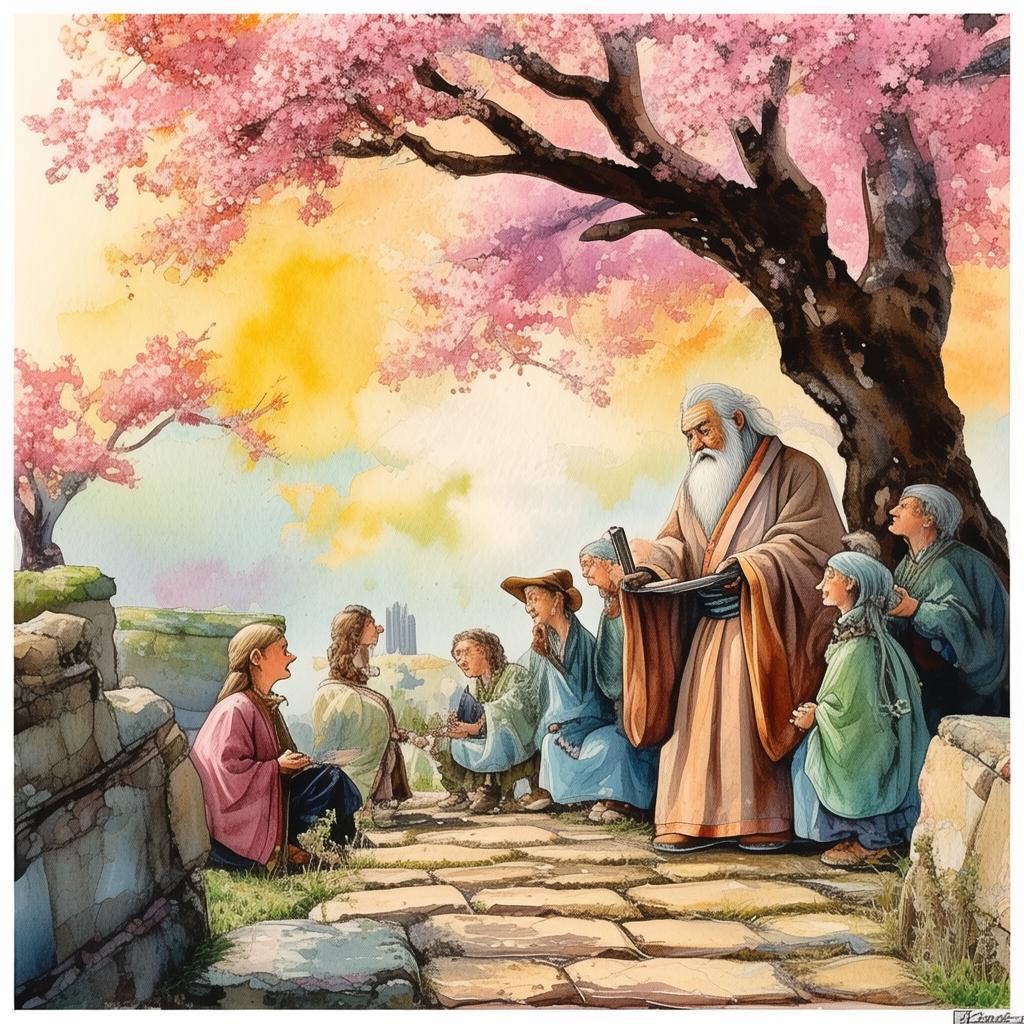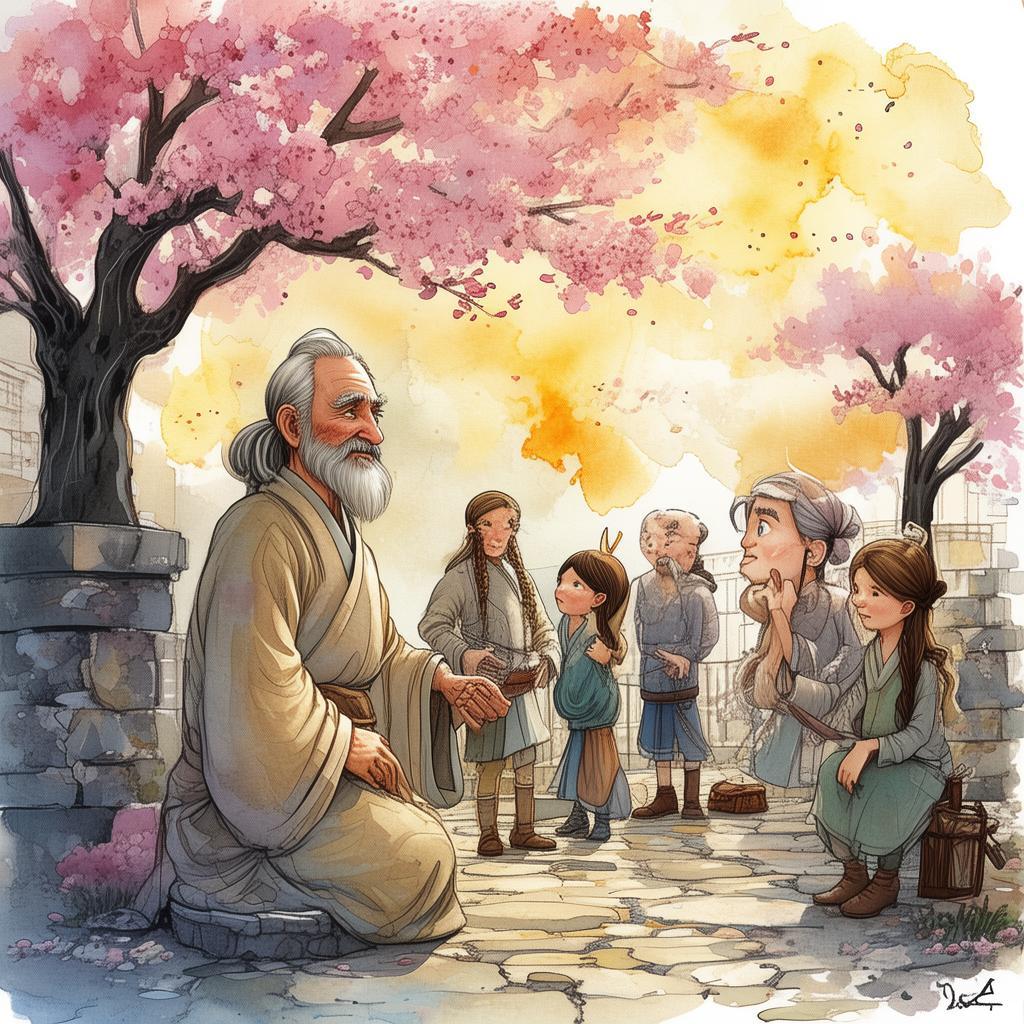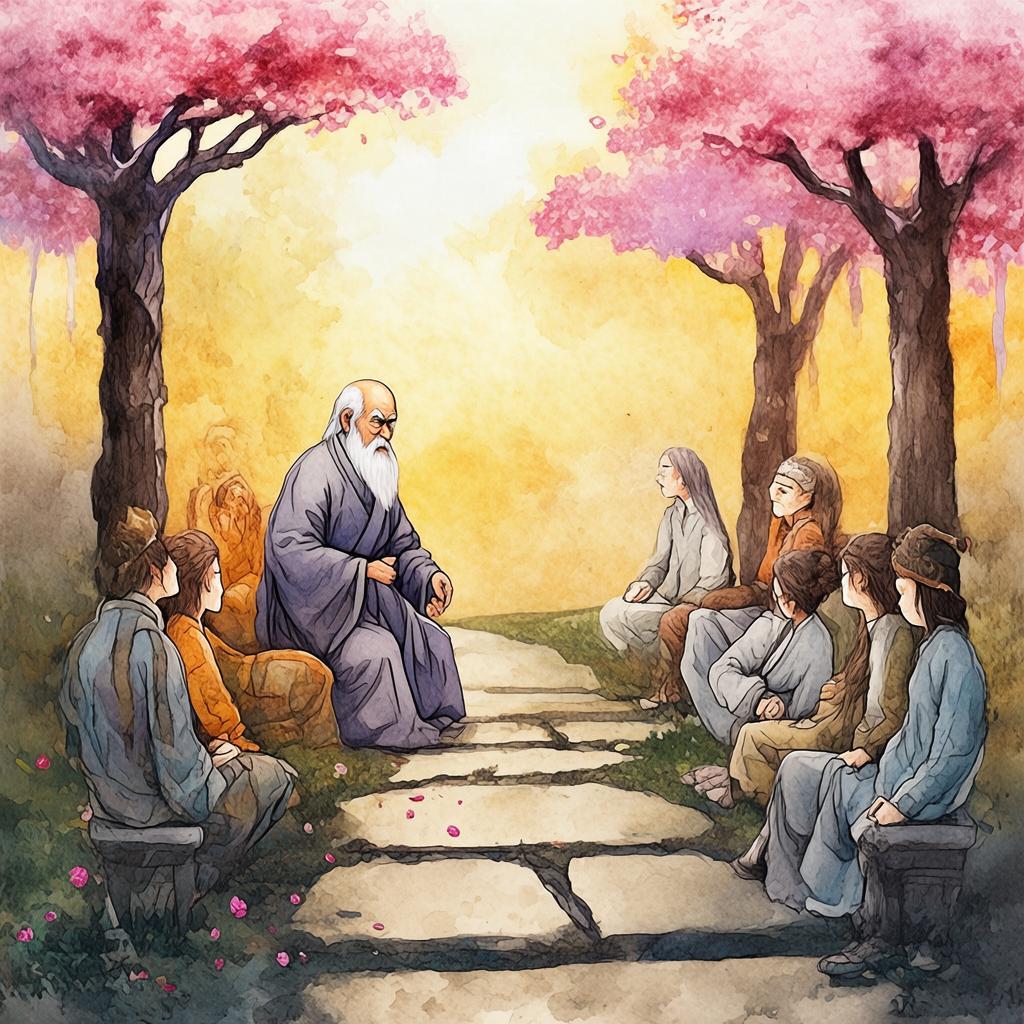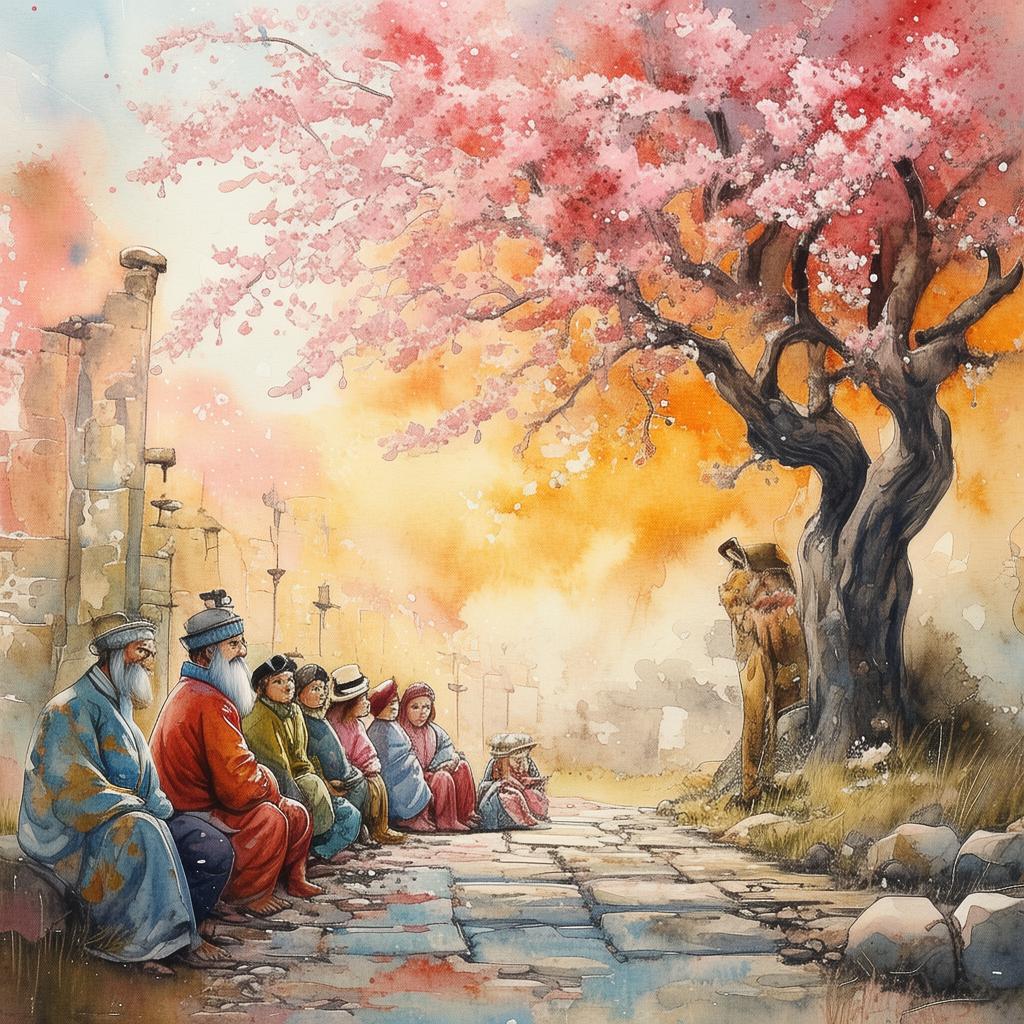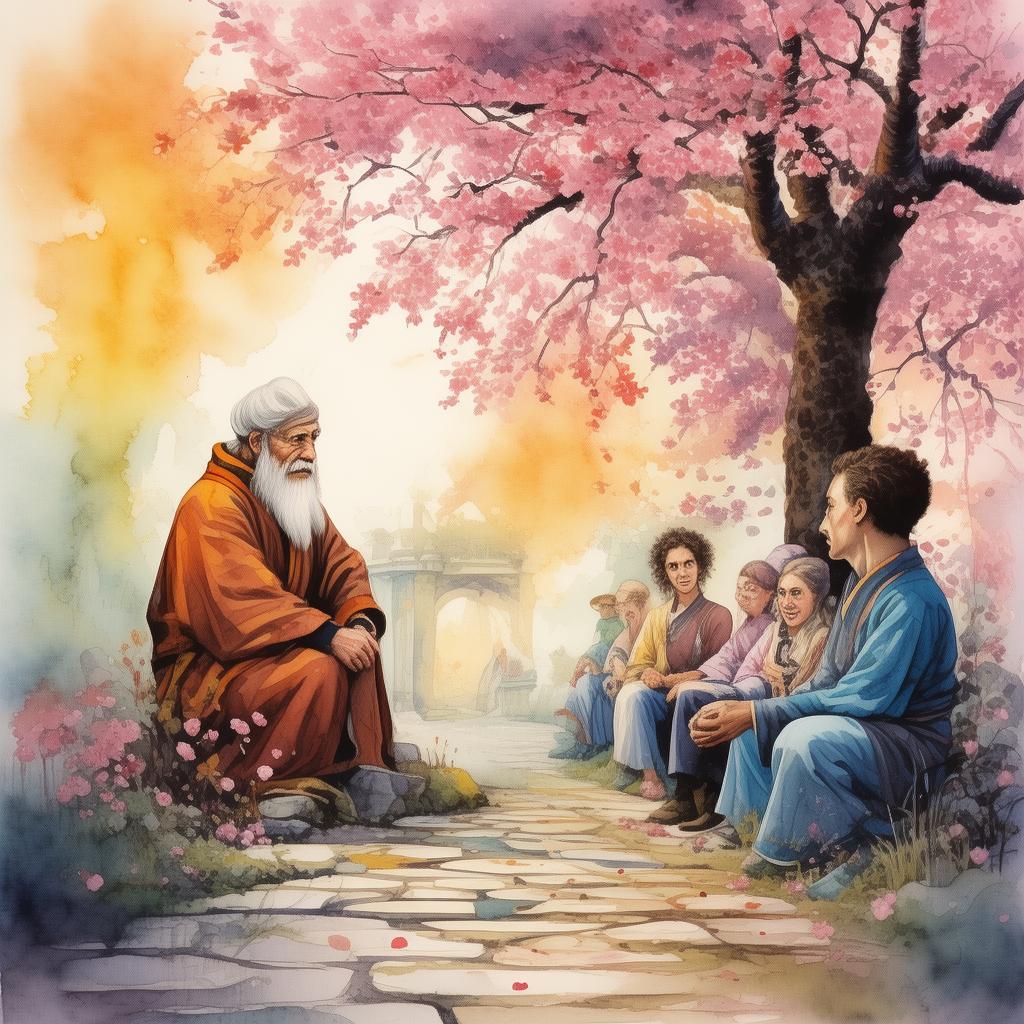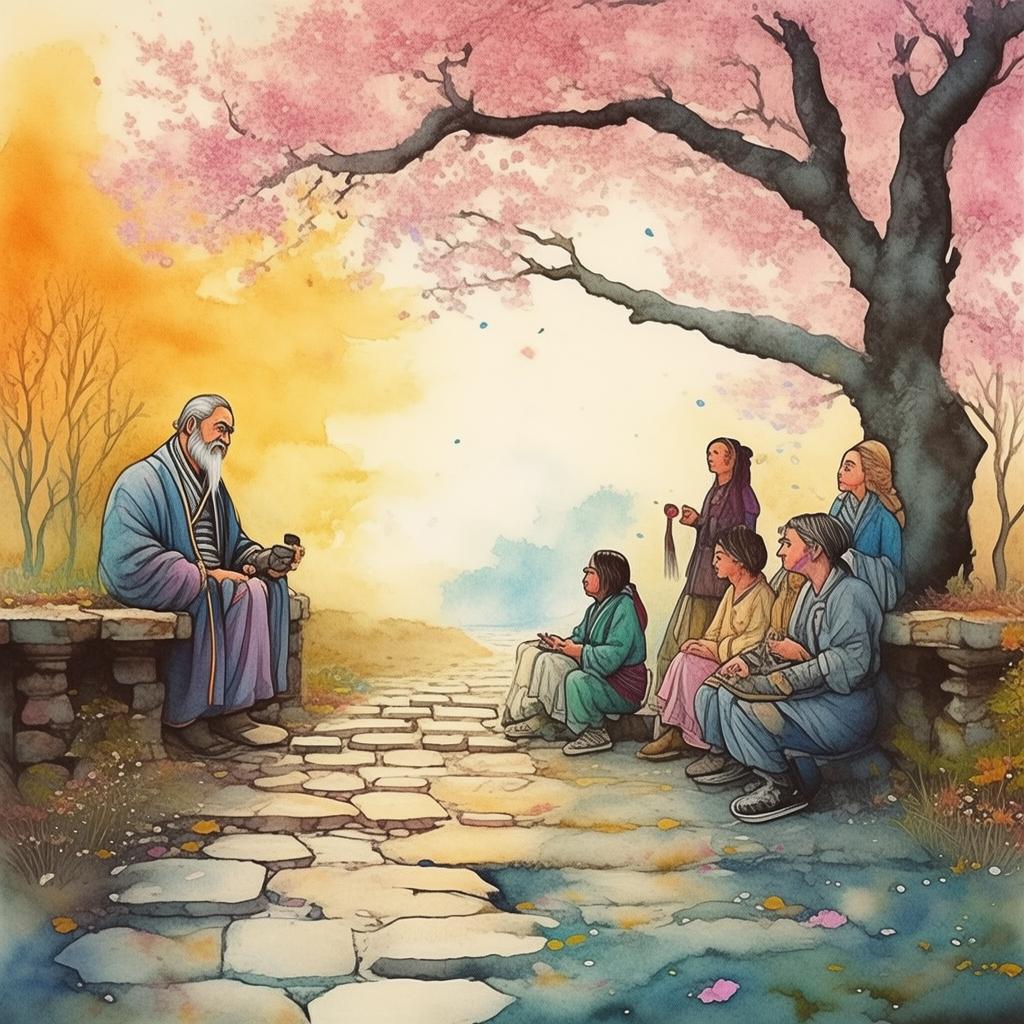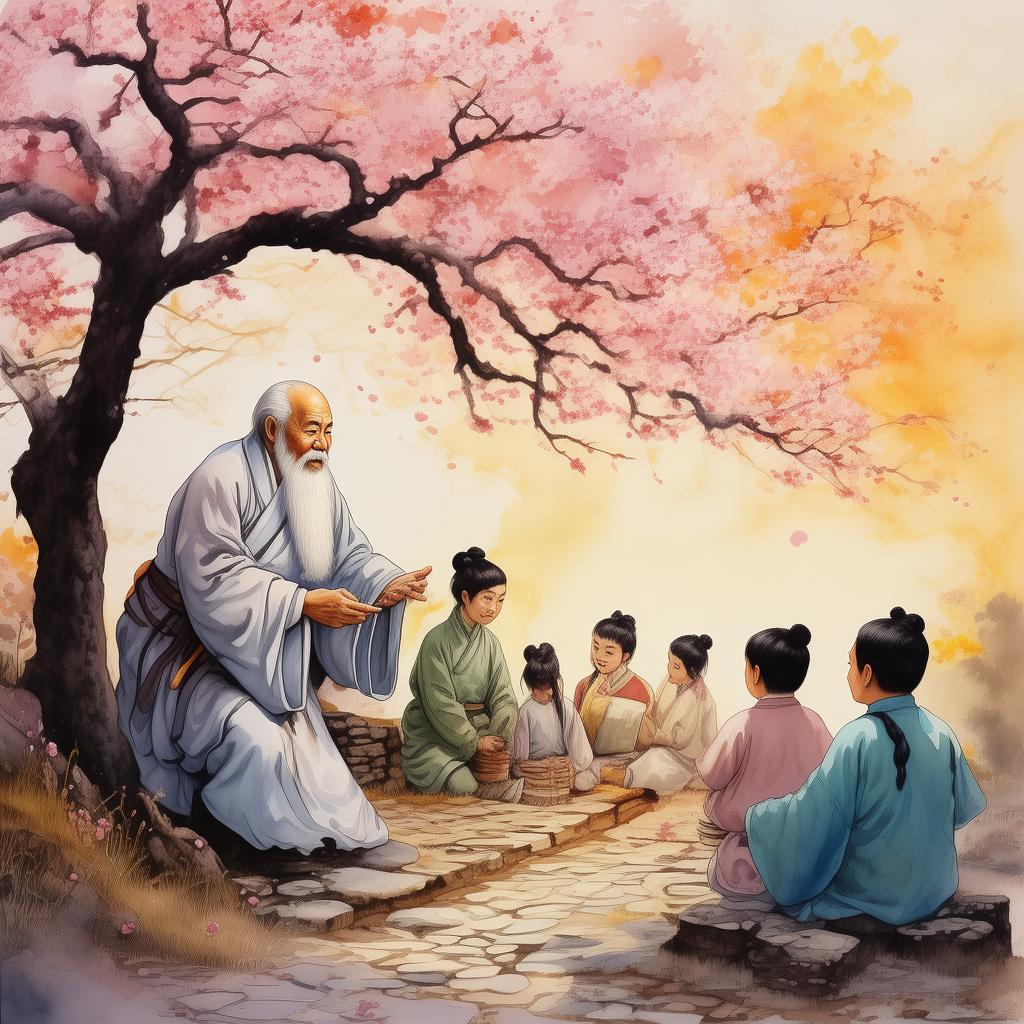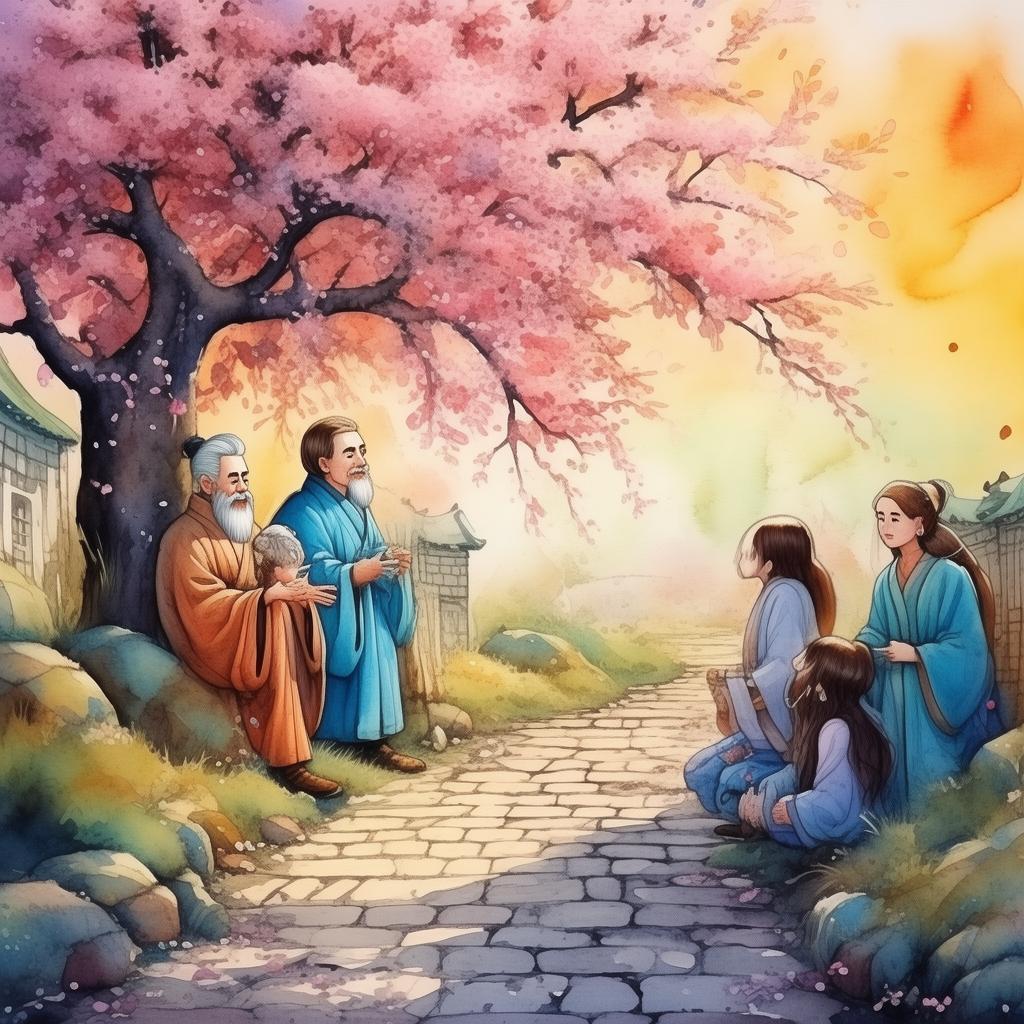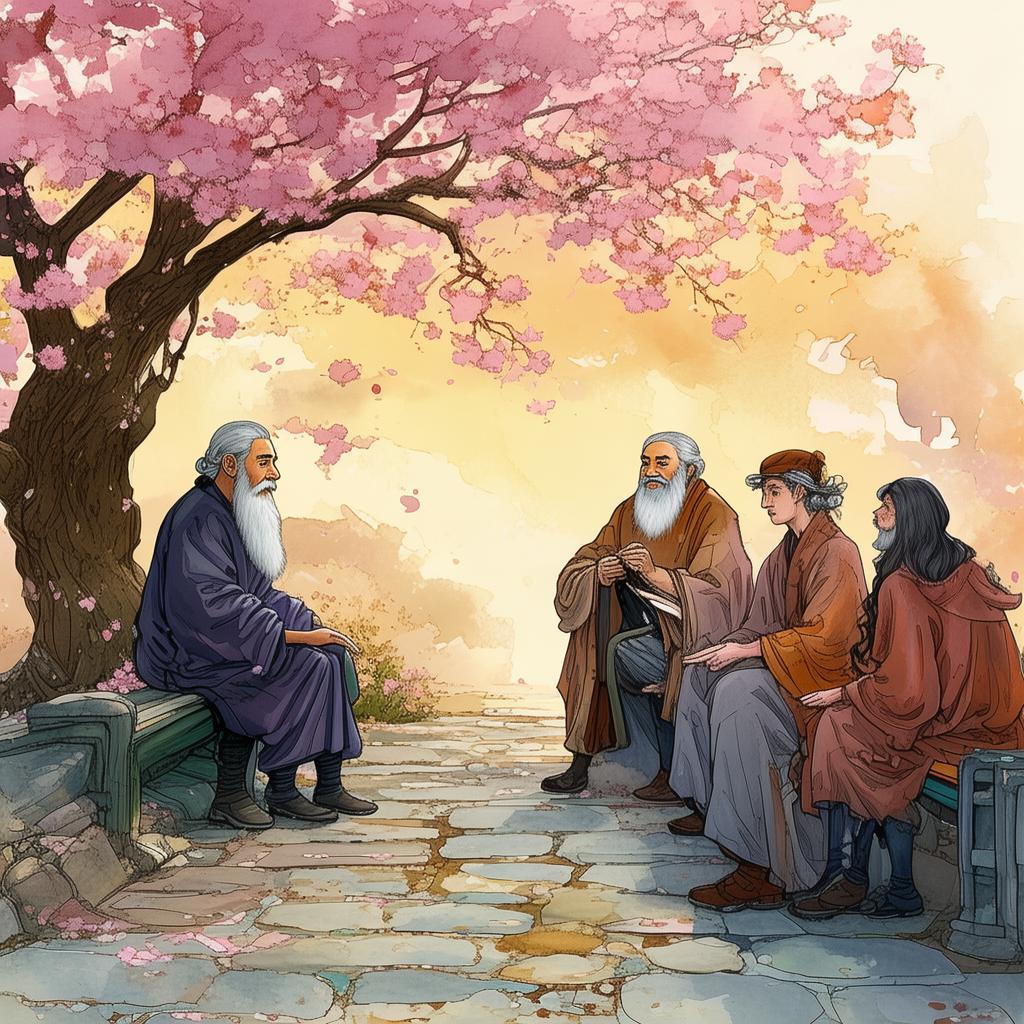Guanning's Escape: The Labyrinth of the Mind
In the ancient city of Chang'an, nestled within the heart of the imperial library, there stood a young scholar named Guanning. His name was whispered among the scribes and scholars, for he was known for his unparalleled intellect and insatiable thirst for knowledge. Guanning spent his days poring over ancient scrolls, his eyes never leaving the pages, his mind a whirlwind of ideas and theories.
One fateful evening, as the moon cast its silver glow upon the library, Guanning found himself in a peculiar predicament. As he delved deeper into the annals of ancient wisdom, he felt a strange sensation take hold of him. It was as if the very walls of the reading hall were closing in, compressing his thoughts and ideas into a confined space, a labyrinth of the mind.
The labyrinth was a twisted maze of thoughts and memories, each path leading to a different aspect of Guanning's consciousness. The air was thick with the scent of parchment and ink, but the silence was oppressive, a testament to the solitude of his mind. Guanning found himself trapped, ensnared in a web of his own creation.
In the heart of the labyrinth, Guanning encountered the specter of his own self-doubt. It was a specter that whispered of his limitations, his fears, and his insecurities. "You are not worthy," it hissed, "of the knowledge you seek. You are but a pawn in the grand game of life."
Undeterred, Guanning pressed on, determined to find a way out. He sought guidance from the ancient scrolls, hoping to find a passage to freedom. Among the dusty tomes, he discovered a passage that spoke of the "Escape from the Reading Halls," a metaphorical journey that would require him to confront his innermost fears and overcome his own limitations.
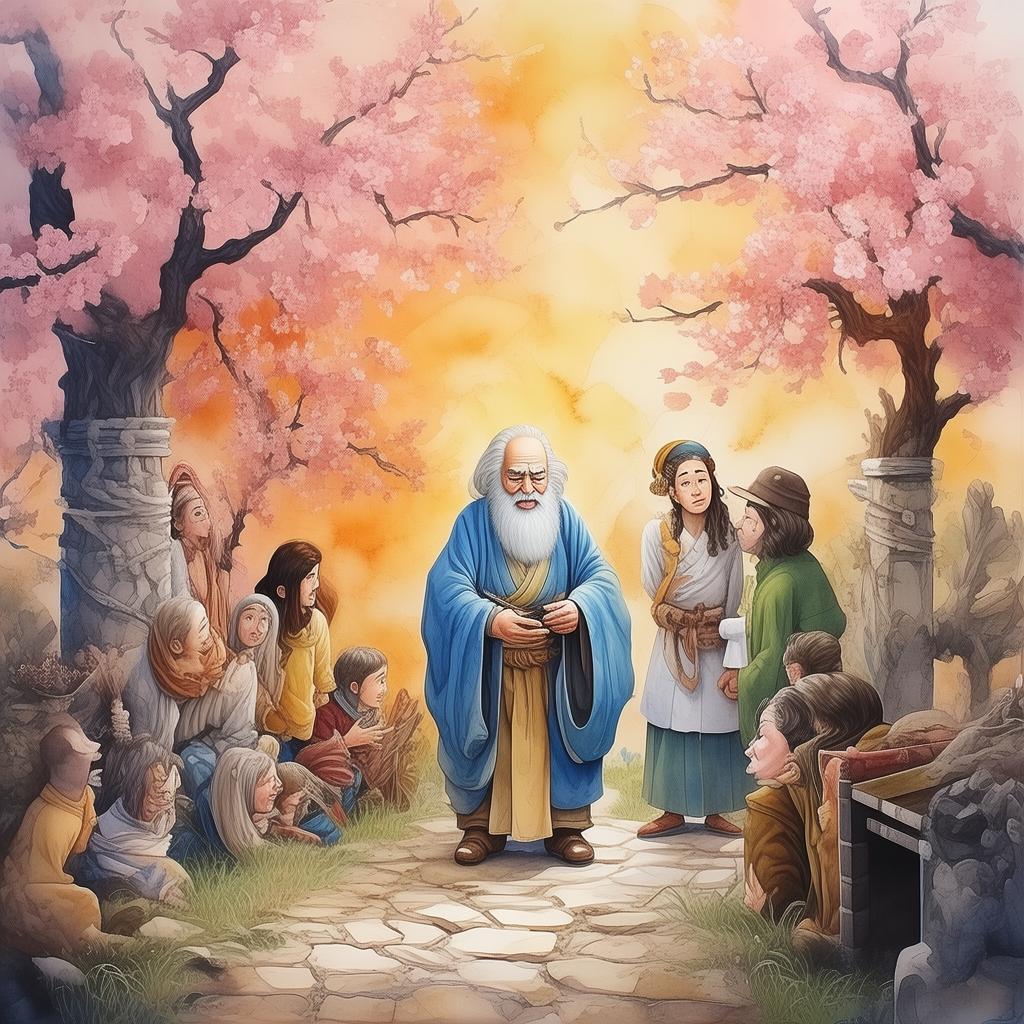
The first challenge Guanning faced was the specter of his own ambition. It was a specter that sought to consume him, to make him a slave to his desire for knowledge and recognition. "You must learn to let go," the specter warned, "for ambition is the enemy of enlightenment."
Guanning took a deep breath and allowed himself to feel the weight of his ambition. He realized that true knowledge was not about amassing power or recognition, but about understanding oneself and the world around them. With this newfound clarity, he banished the specter of ambition, and the path forward cleared.
Next, Guanning encountered the specter of his own pride. It was a specter that sought to elevate him above others, to make him the center of attention. "You are superior to others," it boasted, "and your knowledge is unmatched."
Guanning knew that pride was a dangerous trap, one that could lead to delusion and ignorance. He reminded himself that knowledge was a gift to be shared, not a weapon to be wielded. With humility, he banished the specter of pride, and the path to enlightenment grew brighter.
As Guanning ventured deeper into the labyrinth, he encountered other scholars who had become trapped in the reading halls. Each one had their own specters, their own inner demons, that they sought to overcome. Guanning offered his support and wisdom, and together, they faced their fears.
The labyrinth was a test of Guanning's resolve, his determination to break free from the confines of his own mind. He had to navigate through a maze of illusions, to distinguish between truth and deception, between knowledge and ignorance. With each step, he grew stronger, his mind clearer, his spirit unyielding.
Finally, Guanning reached the heart of the labyrinth, where the specter of his own ignorance awaited him. It was a specter that sought to confine him within the boundaries of his own understanding, to prevent him from seeing beyond the veil of his own consciousness.
"Your ignorance is your greatest weakness," the specter sneered, "and it will keep you trapped forever."
Guanning looked the specter in the eye and declared, "I choose to know, not to be confined by my ignorance."
With this declaration, Guanning banished the specter of ignorance, and the labyrinth began to crumble around him. The walls of the reading hall fell away, revealing the vast expanse of the world beyond. Guanning had escaped the labyrinth of his mind, and with it, he had achieved enlightenment.
He emerged from the labyrinth a transformed man, his mind freed from the chains of his own creation. He realized that true knowledge was not confined to the pages of a book, but was a journey of self-discovery and understanding. With this newfound wisdom, Guanning returned to the library, not as a scholar, but as a guide, a mentor, and a friend to those who sought the same enlightenment he had found.
And so, the tale of Guanning's Escape from the Reading Halls became a legend, a story of courage, determination, and the indomitable human spirit. It served as a reminder that the greatest journey one can undertake is the journey within, the journey to understand oneself and the world around them.
✨ Original Statement ✨
All articles published on this website (including but not limited to text, images, videos, and other content) are original or authorized for reposting and are protected by relevant laws. Without the explicit written permission of this website, no individual or organization may copy, modify, repost, or use the content for commercial purposes.
If you need to quote or cooperate, please contact this site for authorization. We reserve the right to pursue legal responsibility for any unauthorized use.
Hereby declared.
